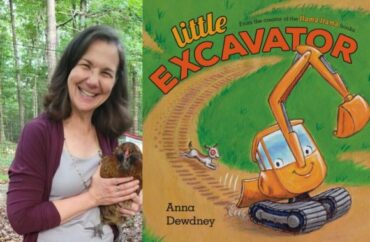
Speech-language pathologist says she is hesitant to universally recommend reading aloud to kids
A program that provides free books to kids from birth until the age of five promotes “heteronormativity,” “ableism,” and “sexism,” according to a doctoral thesis.
Jennifer Stone applied a critical race theory lens to the Dolly Parton Imagination Library’s set of 60 books. The country music singer’s foundation partners with libraries to distribute one book a month.
Stone is a speech-language pathologist of 25 years who started her own early reading initiative. She obtained her doctorate in speech and hearing sciences this spring. The results of her study led her to decide to stop recommending reading aloud to kids.
“The analyses revealed diverse racial representation that disrupts the history of White dominance in children’s literature accompanied by perpetuations of multiple hegemonic cultural stereotypes,” Stone (pictured) wrote.
“Characters with dis/abilities, non-normative gender identities, or non-normative family structures were erased,” she wrote in her abstract. “Additionally, inconsistent messaging regarding books and reading was conveyed.”
“No explicit references to sexual identity were found in the corpus,” she also complained.
This is a program for kids, it must be noted.
“Characters’ relationships were subjected to social domination enacted first by mothers as childism then by society through ableism and sexism,” she wrote later in the paper. “No models of collaborative mothers or same-sex partnerships challenged the ubiquitous heteronormativity or maternal enforcement in characters’ familial relationship.”
“Three inductively derived themes: reading to succeed, living the American dream, and perfecting parenting revealed complex intersections of discourses of power that resulted in oppressive childism, which operated to subjugate children and to privilege a White, middle-class, cis-gendered, heteronormative, able-bodied American norm,” she wrote.
Stone explained in her thesis how many of the books were problematic.
“[H]eterornormativity functioned as the implicit norm against which other family structures were compared,” Stone wrote. In other words, the kids’ books promoted a mom and a dad in the home too often.
Each book is coded with “family structure,” “race,” and “class,” an astonishing feat given that many characters are not human. For example, in “Goldilocks and the Three Bears,” the family is considered “white.” But they are not polar bears.
Books were also criticized when they promoted people working who did not have disabilities. “Individualistic able bodies and actions were further illustrated as a desirable ideal through the themes that celebrated the value of work,” the thesis stated.
MORE: ‘Queering nuclear weapons,’ can strengthen national security, researchers say
A book titled “Little Excavator,” is criticized for promoting the benefits of work.
The book “centered the story of a young excavator, emulating the adult excavators so that he could someday join the big, adult excavators’ workforce,” Stone lamented. “This illustrated the commonly accepted social convention in which children are expected to identify a career path early in life and work happily toward it.”
She provided several other examples of work-centered books, all of which “situated narrative action in employment settings characterized by obedience to authority and day-to-day participation in a job as a form of meritocracy and as a path to personal and financial success.”
Dolly Parton’s own book, “Coat of Many Colors,” took criticism from Stone for promoting the “American dream,” or the idea individuals can succeed through hard work. Furthermore, the book was criticized for having Spanish translations in the text.
Stone criticized another book for promoting a “gender normative role,” and having a cross on the wall.
“Brick by brick used a first-person narrative, told in the voice of Luis, a young bilingual boy, to describe a Latinx family’s achievement of the American dream,” Stone wrote. “It was written and illustrated by a White woman, who used photographs, digital painting, and collage.” The family in the book hopes to one day buy their own home.
The book celebrates how the family’s “labors moved them to achievement of that goal, and the sequence of illustrations conveyed the movement through time and place for each stage of the dream achievement.”
The mom was in a “housecoat and slippers,” as Luis and Papi let, thus implying a “gender normative role by staying home to clean while [her husband and son] when out to work and school. ”
A cross hung on the wall, implying Christian family heritage,” Stone writes. “These images set the stage for a metaphorical rags beginning for this family whose first language was implied as Spanish.”
However, Stone also praised this book for showing a non-white dad supporting his child.
Parton’s free book program did a good job, according to Stone, of including “racially diverse characters at a rate that could be transformative in the ongoing effort to increase racial diversity in children’s literature.”
However, Stone worries, the characters advance harmful narratives. “However, the [family literary theory]-informed appreciation of racial representation in the corpus co-exists with the CRT-informed analysis that points to these inclusive images as potential locations for oppressive power,” she wrote.
Some books used “melting pot,” characters, showing a variety of ethnicities. So this can be good, Stone writes. But it can also promote the dangerous idea, in her opinion, of “equal opportunity.”
“When melting pot imagery is included without cultural authenticity, it can reinscribe equal opportunity ideologies,” she wrote. “Equal opportunity ideologies mask structural inequities and place responsibility for successes and failures in individuals. In this corpus, melting pot representations created a sense that everyone can participate in all society has to offer, regardless of race.”
However, according to Stone, “systemic racism that obstructs access to American educational, health, and employment resources for people of color,” makes these depictions “dangerous fictions.”
The research led Stone to reconsider the benefits of reading aloud to kids as a universal practice. She will still read to kids, but will be careful not to promote “white saviorism,” and other ills.
“I see a risk that the ever-expanding prescription of daily read alouds and book ownership as key components of parenting could be contributing to literacy inequities through majoritarian storytelling and colonization of families’ primary literacies with dominators’ cultural values,” she writes. “The power of literacy and the pervasive inequities in it are so persistent that any risk merits a pause in action and careful reconsideration of accepted discourses.”
“For me, pausing and reconsidering has led to new understandings of literacy and literacy interventions,” she wrote.
“I now understand literacies as multiple and dynamic and literacy intervention as potentially dangerous and informed by White saviorism.”
MORE: Vampires are a ‘queer icon,’ scholar argue in new book
IMAGES: University of North Carolina; Anna Dewdney/Viking Books for Young Leaders
Like The College Fix on Facebook / Follow us on Twitter







Please join the conversation about our stories on Facebook, Twitter, Instagram, Reddit, MeWe, Rumble, Gab, Minds and Gettr.